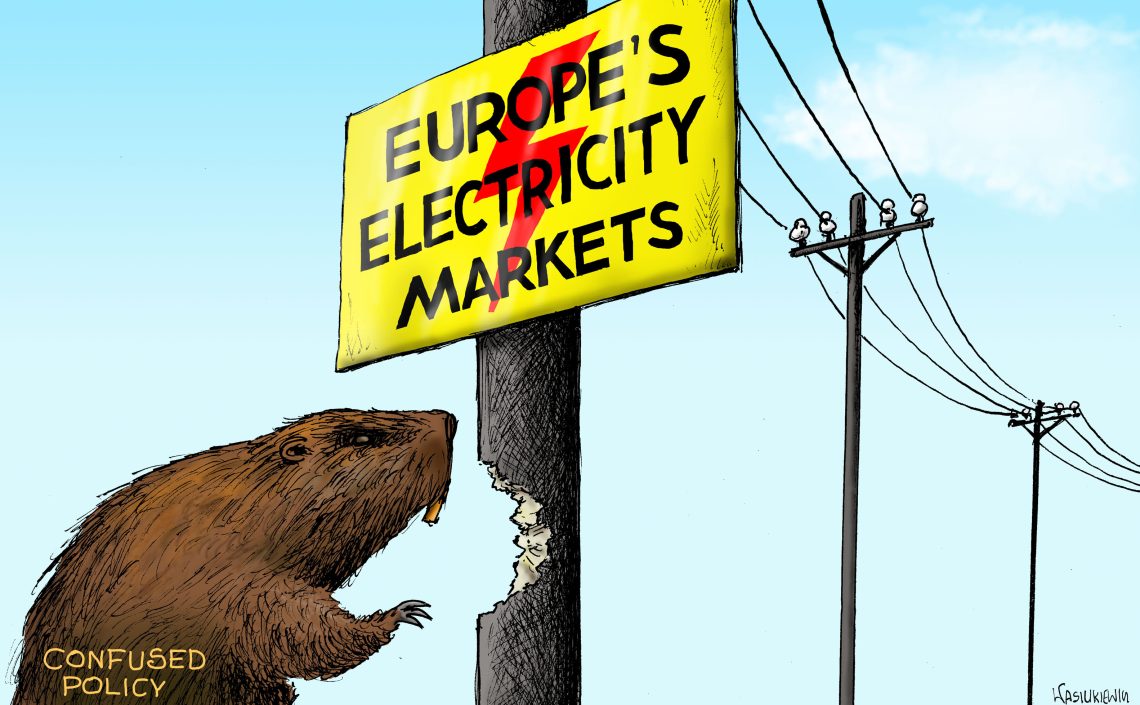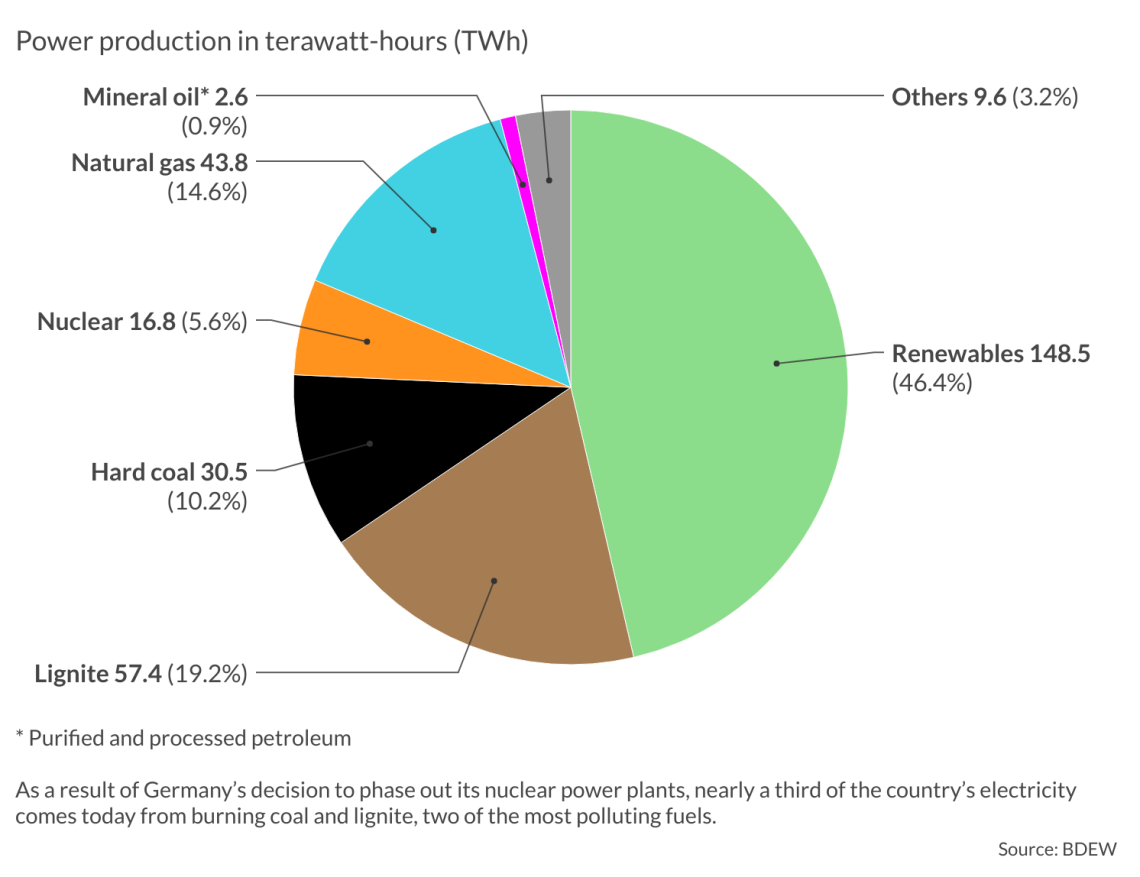A body blow to Europe’s proven electricity market
How not to respond to an energy crisis: Replacing the EU’s electricity market with ill-conceived interventions is a recipe for longer-term trouble.

One of the towering achievements of the European Union is its internal electricity market, which has developed since 2009. It opened the way for energy sector liberalization and improved Europe’s energy security. Maintained by competent market operators and dedicated engineers, the system created an energy-supply equilibrium between and inside countries through intricate supply-and-demand mechanisms. But now, it is all at risk because politicians are making all the wrong choices.
Before we come to that, it is worth explaining some electricity market basics.
The objective of creating an electricity market is securing supply, responsible power generation and, finally, affordability. The EU electricity market sets the power prices with an efficient mechanism.
How things work
A certain amount of electricity is needed in the grid at a specific time, but demand fluctuates. The system will first include the least expensive bids, based on variable costs, and then add other, less efficient supply sources until electricity demand is met.
The result is that the price of electricity (to the consumer and all suppliers) is that offered by the moment’s highest-cost producer.
This system offers the advantage of rewarding investment in low-cost electricity generation, renewables and nuclear power – which are also the environmentally cleanest. However, gas- and coal-burning power plants need to be activated during peak demand and the periods when the sun light and wind are in short supply.
The electricity market worked well, Europe did not suffer blackouts and prices were affordable in most countries.
Another problem arises from inadequate transmission systems and insufficient supply caused by a negative attitude toward nuclear energy. The failure to modernize and expand the existing system, along with politically motivated plant decommissioning, have exacerbated the dependence on natural gas. As long as Russia supplied affordable gas to Europe, electricity prices remained affordable. However, this is no longer the case. Electricity prices and consumers’ bills have skyrocketed.
In some countries, especially Germany, electricity costs were high even before the 2022 crunch. That was caused by subsidizing the capital cost of some renewables through higher feed-in prices to the grid. Generally, though, the electricity market worked rather well; Europe did not suffer blackouts and prices were affordable in most countries.
Shameless populism
These days, pragmatic policies on the Union and national level fall prey to confused activism. The actors do not shy away from displaying astounding incompetence, whether regarding the technical and scientific basics or the iron laws of economics. The cause-and-effect relationship is utterly ignored.
The European Commission and its President Ursula von der Leyen are pushing for a tax on “excessive” profits of the cost-efficient producers. The inevitable result of such a proposal would be reduced investment in efficient and clean energy. The tax would spell the end of the well-working European electricity market.
Germany is Europe’s largest economy and, by extension, its largest energy consumer; it is painful to watch the exercises of its coalition government in this regard. The minister of the economy from the Green Party continues to insist on shutting down all three of the country’s remaining nuclear power plants by this December 31 – but is generously inclined to allow keeping two of them “on standby” for emergencies until the end of the coming winter.
This stance is absurd for two reasons. First, Germany and Europe can ill afford to give up this energy source, especially now. The second problem, even more alarming, is that due to technical limitations, nuclear power plants cannot be switched on and off at someone’s whim.
Europe is in a crisis caused by incompetent leadership and unsustainable policies. It has been known for quite some time – GIS sounded the alarm several times – that those two follies, renouncing nuclear power and overdependence on Russian gas, posed huge hazards to Europe’s energy security and its climate-mitigation efforts.
Facts & figures
The naivete – mainly displayed by Berlin – that one can have a strong sanctions policy against Russia while relying on it for regular energy deliveries is hard to beat. For years, Berlin’s energy politics were self-destructive. After the 2011 Fukushima nuclear accident, the government of Chancellor Angela Merkel seized the opportunity to score politically by hijacking the Greens’ anti-nuclear platform and ordering a gradual decommissioning of Germany’s nuclear power plants. The tragic result is on full display now: a “victory” for the Greens in which nearly 30 percent of the country’s electricity generation comes from burning two of the most polluting fuels, coal and lignite (brown coal).
What is to be done?
These days, in the frantic discussions in Europe, one hears little on how to increase energy generation at home. The politicians’ focus is on mechanisms to control the prices and devising rigorous energy-saving schemes to impose on the people. In its zeal, the European political body is ready to kill the electricity market system that proved effective. “Capping” the prices may help arrest them in the short term but will harm Europe’s medium- and long-term energy security. The administrative intervention will lead Europe to electricity rationing, blackouts, increased costs and continuing dependence on burning coal. Amazingly, such policies are being brought forth by institutions that claim to be committed to sustainability.
Instead of falling for such centralist ploys, Europe needs to work seriously toward more robust energy security and local energy production. Although I am a believer in global markets, competitiveness also means solid self-sufficiency in critical supplies or diversified supply sources. In our unfortunately even more fragmented world, this is essential.

